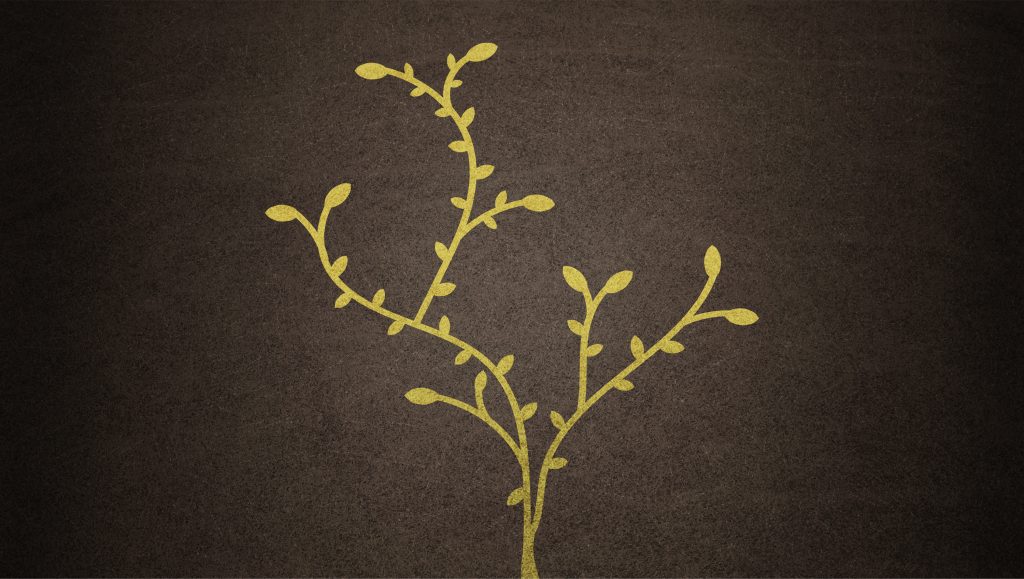
John 15:1-12 (ESV)
I am the true vine, and my Father is the vinedresser. Every branch in me that does not bear fruit, he takes away, and every branch that does bear fruit he prunes, that it may bear more fruit. Already you are clean because of the word that I have spoken to you. Abide in me, and I in you. As the branch cannot bear fruit by itself, unless it abides in the vine, neither can you, unless you abide in me. I am the vine; you are the branches. Whoever abides in me and I in him, he it is that bears much fruit, for apart from me you can do nothing. If anyone does not abide in me he is thrown away like a branch and withers; and the branches are gathered, thrown into the fire, and burned. If you abide in me, and my words abide in you, ask whatever you wish, and it will be done for you. By this my Father is glorified, that you bear much fruit and so prove to be my disciples. As the Father has loved me, so have I loved you. Abide in my love. If you keep my commandments, you will abide in my love, just as I have kept my Father’s commandments and abide in his love. These things I have spoken to you, that my joy may be in you and your joy may be full.
This is my commandment, that you love one another as I have loved you.
For as long as I can remember, Rock of Ages, has been one of my favorite hymns. It has sentimental value to me: my dad introduced it to me and we sang it frequently at the small church plant of which he was a pastor. We also sang it at our wedding, John Mark and I surrounded by so many of our family and friends in the front of my home church, which held such a special place in my heart. But this hymn has also long been one of my favorites because I learned in a season in which I was first beginning to understand the gospel. The line that begins the third stanza has so frequently felt weighty upon my heart:
Nothing in my hands I bring, simply to thy cross I cling.
For many of us, these last few months have shown us in new and tangible ways what we have long known and sung to be true. We have seen that when left to ourselves we have nothing to bring. We can look at the days ahead, at the needs of our families, our communities, and the city around us and can quickly feel weary and defeated. We have been brought to the end of ourselves—with nothing to offer and nothing to give.
Jesus gives his final I Am statement in the midst of the upper room discourse—his final conversation with his disciples before he goes to the cross. In his care and kindness, he is preparing them for what lies ahead- circumstances in which they will likely find themselves much like us- weary, empty handed and at the end of themselves. Jesus’ words in this passage are intended to show the disciples how to endure. On their own they can do nothing. So he says to them, and to us, draw your nourishment from me. . . .
I am the vine.
This is such a powerful image because it shows us that the essence of the Christian life is connectedness to Jesus. He is the vine. We are the branches. And then six times in this short paragraph, he says, “Abide.” It has the feeling of both an invitation and a command, this call to his disciples and to us to remain in him, to make our home in him in such a way that we draw everything we need from who he is!
Rankin Wilbourne, in his book, Union with Christ, fleshes out what it means to abide so poignantly. He says,
On the one hand, the word suggests resting and staying, like a child leaning into his mother’s embrace. It’s a posture of reliance for care and even survival. . . . On the other hand, abiding is an action. It is something you must choose to do. (p. 214)
Abiding is one of those great paradoxical realities of the Christian life. It is the call to come with nothing, but to fight to cling tightly. It is the call to rest in the reality that Jesus has come near to you, but to fight with all you have to daily live in nearness to him. It is the reality that his presence with us is all of grace, but that we must diligently pursue the means of grace to experience the fullness of who he is.
What has struck me in this study of the I Am statements is that they are all inherently relational. Jesus has been revealing to us that he is God himself, and that he has come to give us what we need most—namely a living relationship with him. He has drawn near to us, and the way we experience his presence is to abide in the vine.
Bearing Fruit
Jesus tells his disciples, that when they abide in the vine they will bear much fruit. Fruit in the life of the believer is evidence of a heart that has been changed, evidence of a life connected to the vine. Fruit is borne in the life of a believer in a myriad of ways, but this passage mentions three specifically—love, obedience, and joy.
How timely Jesus’ words are for us in this July. Are love, obedience, and joy not central to the questions we are asking and conversations we are having? How do we love our families well when so much time together has made us impatient and irritable? How do we love our neighbors sacrificially when we are tired of doing it? How do we love one another in the church in this season of so much tension, so much division, so much unrest? How do we love those with whom it seems hard to find any common ground? We have tried to manufacture it and failed. We have tried to love in our own striving and strength and are weary. Jesus says abide in my love, only then can you love like me.
We are asking the questions of obedience. What does it look like to live like Jesus when so much seems uncertain and unclear? How do we give of ourselves when our resources are waning? How should we stand for justice and truth? How do we continue to repent and to forgive when the weight of sin and hurt feels overwhelming? We have seen that we cannot do any of this in our own striving and strength. Jesus says, abide in me.
And we are asking questions of joy. How do we have joy in the midst of so much suffering and sorrow? How do we have joy in the midst of so much uncertainty and unrest? How do we have joy when our purpose seems thwarted and our plans erased? How do we have joy when we are lonely and fatigued and afraid? How do we have joy when the days seem monotonous and there seems to be no end in sight? Jesus says, abide in me so that my joy will be in you and your joy will be full.
Pruning
The bearing of fruit, of love and obedience, and joy is what we were created for, for by it God is glorified! For those who abide in the vine, Jesus says that his Father, the vinedresser, is continually about the work of pruning us that we may bear more fruit. Pruning is that often painful process in which the Lord works to remove from us that which does not glorify him, is not good for us, and is not fruit.
For many of us in these days, we have experienced God’s pruning of us of new in and difficult ways. The removal of the idols of our hearts and the habits of our lives often hurts. But in this image of the vine and the vine dresser, Jesus is reminding us that the Father’s pruning of us always happens in his presence and according to his purpose.
A friend and mentor of mine has always brought this passage to life for me. He talks about how the pruning of the vine does not take place from a distance. The vinedresser is not far away with long pruning shears recklessly cutting off whatever he can. Rather he comes close, and as he cuts, he holds the vine tenderly in his hand. In fact, my friend says, he is never closer to us than when he is pruning us. As we endure the pruning process in our own life, we can rest knowing that the pains we experience are not random slices from a far off God, but rather careful cuts from the God who comes near and holds us close.
This pruning is not only personal but purposeful. Sinclair Ferguson has said that there is “never one wasted stroke of his pruning knife in your life.” Each idol and sin and comfort that God removes from us is for the purpose that we bear more fruit, that we look more and more like who God has always intended for us to be. For it is in being remade more and more into the image of Jesus that our life and flourishing is found.
Friends, in these days when our strength is waning and our well is dry, may we fight with all we have to abide in the vine. May we draw our nourishment and our life from him, and may we endure his pruning of us with hope. For in doing so we will bear much fruit, and as a result, he will receive all the glory.
